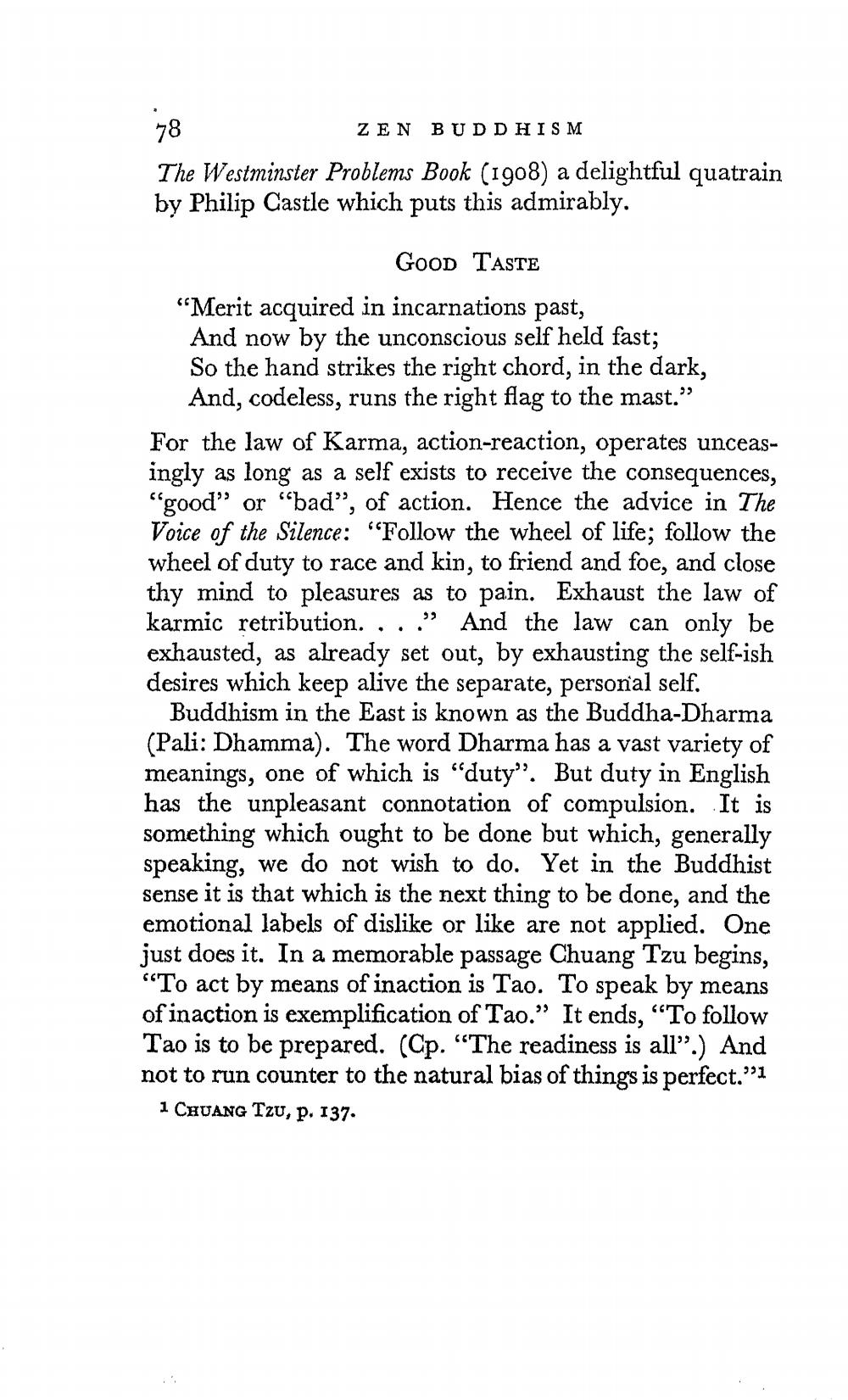________________
ZEN BUDDHISM
The Westminster Problems Book (1908) a delightful quatrain by Philip Castle which puts this admirably.
GOOD TASTE “Merit acquired in incarnations past,
And now by the unconscious self held fast; So the hand strikes the right chord, in the dark,
And, codeless, runs the right flag to the mast.” For the law of Karma, action-reaction, operates unceasingly as long as a self exists to receive the consequences, "good" or "bad", of action. Hence the advice in The Voice of the Silence: "Follow the wheel of life; follow the wheel of duty to race and kin, to friend and foe, and close thy mind to pleasures as to pain. Exhaust the law of karmic retribution. ..." And the law can only be exhausted, as already set out, by exhausting the self-ish desires which keep alive the separate, personal self.
Buddhism in the East is known as the Buddha-Dharma (Pali: Dhamma). The word Dharma has a vast variety of meanings, one of which is “duty". But duty in English has the unpleasant connotation of compulsion. It is something which ought to be done but which, generally speaking, we do not wish to do. Yet in the Buddhist sense it is that which is the next thing to be done, and the emotional labels of dislike or like are not applied. One just does it. In a memorable passage Chuang Tzu begins, "To act by means of inaction is Tao. To speak by means of inaction is exemplification of Tao." It ends, “To follow Tao is to be prepared. (Cp. "The readiness is all”.) And not to run counter to the natural bias of things is perfect."1
1 CHUANG Tzu, p. 137.




